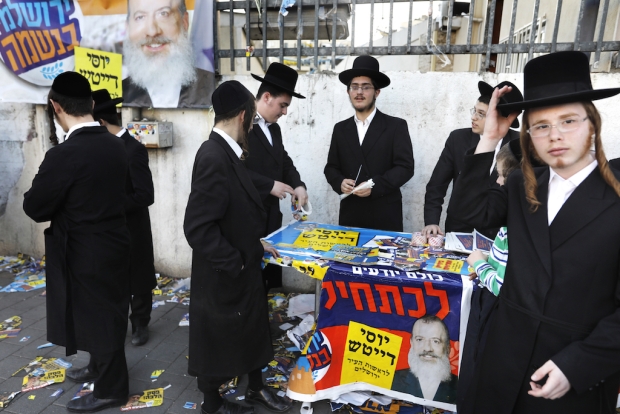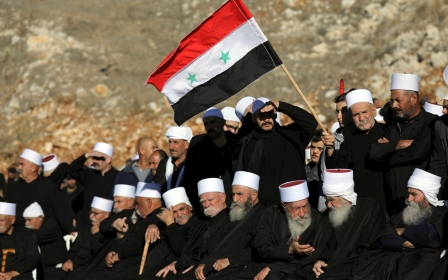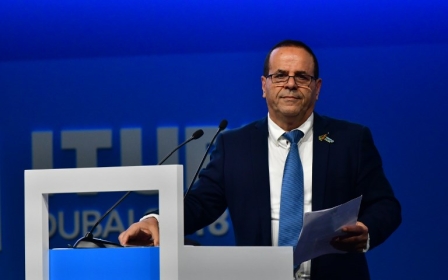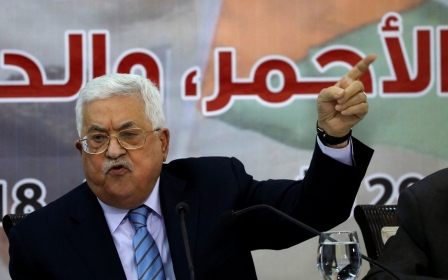Israeli press review: Jerusalem mayoral vote goes to second round

Tight Jerusalem mayoral race goes to second round
Jerusalem residents will vote in a runoff election in two weeks’ time to determine who will be their new mayor, after none of the candidates in Tuesday’s election managed to secure 40 percent of the popular vote, Nir Hasson writes in Haaretz.
With 95 percent of the ballots counted, businessman Moshe Leon led the candidates with 33 percent of the vote, while social activist Ofer Berkovitch followed closely behind with 29 percent of the vote.
Berkovitch’s slate “Awakening” looks to be the largest list on the Jerusalem City Council, with about 20 percent of the seats. The second, third, fourth and fifth-largest slates on the city council are all Orthodox and Ultra-Orthodox parties, together comprising about twice that proportion of council seats.
Leon’s faction did not even receive a single seat on the council, and if he wins the race in the second round of voting, it will be the first time that someone who does not hold a council seat is elected the city’s mayor. Leon’s chances to win the final bout are still considered good, however, because he has received the endorsements of Ultra-Orthodox factions and the vote of Sephardic Chief Rabbi Yitzhak Yosef.
Several progressive factions also failed to win enough votes to earn seats on the council.
Despite the support he received from Prime Minister Benjamin Netanyahu and the current Mayor of Jerusalem Nir Barkat, Minister for Jerusalem Affairs Ze’ev Elkin trailed in third place with just under 20 percent of the vote, and conceded defeat. Ultra-Orthodox candidate Yossi Deitch followed in fourth place with about 17 percent of the vote.
Palestinian residents of Jerusalem continued to protest Israel’s occupation of the city by boycotting the municipal elections, with only about 2 percent participating at the polling booths.
Candidates tout ties to Netanyahu, hoping for greater funding
In elections for city councils across Israel, candidates associated with the right-wing parties sitting in the government of Prime Minister Benjamin Netanyahu have been touting their connections to members of his cabinet, openly suggesting that these ties will result in increased funding for the cities they hope to represent if elected, The Marker reports.
Israeli ministers have made similar suggestions, stumping for municipal slates across the country and dropping references to their preferred candidates’ connections to those already in high office.
In the northern town of Beit She’an, Netanyahu remarked that a train to Tel Aviv would be built if his candidate of choice gets voted into power. Meanwhile, Finance Minister Moshe Kahlon told voters in the same city that a ballot for the incumbent mayor would pave the way for the construction of a high-tech park there.
In other locales, Regional Cooperation Minister Tzahi Hanegbi lauded one candidate as “connected to members of the Knesset [Israel’s parliament], ministers and the government,” while Social Affairs Minister Gila Gamliel vowed elsewhere that if the candidate of her choice is elected, the town will receive “lots of resources”.
The revenue generated by local governments only amounts to half of their budgetary requirements, wrote Hagai Amit. In order to fund basic municipal services such as schools, roads and medical services, city councils are dependent upon supplemental funds from the respective ministries in the national government.
Although these allocations are ostensibly distributed without a thought for political considerations, the active intervention of Netanyahu government officials shines a light on the systemic dependency of the local councils and the shady allegiances that animate municipal politics in Israel.
Justice minister violates election laws
Israeli Justice Minister Ayelet Shaked broke an Israel law that forbids active campaigning inside polling stations on election day, Calcalist reports.
As Israelis across the country voted in local elections, Shaked uploaded a video to her Twitter account in which she was seen displaying to the camera her ballot for Tel Aviv-Jaffa city council, and calling upon viewers to cast their own ballots for the Jewish Home faction, the party she represents in the Knesset, Israel’s national parliament.
Shaked’s video would seem to directly contravene Israeli law, which forbids electoral campaigning “in writing, verbally or in any other manner, in the polling place or within a distance of less than 25 meters from the polling place”.
Within hours, outrage over the blatant violation led Shaked to delete the video from her account and apologise for posting it, saying that she "did not know it violated the election campaign law.”
The slate supported by Shaked, which has long campaigned to cleanse the city of tens of thousands of non-Jewish African asylum seekers, earned a single seat on the Tel Aviv-Jaffa city council.
Another extreme anti-African faction that won a public embrace from Prime Minister Netanyahu, “The City’s South,” did not secure enough votes to earn a seat on the local council.
Middle East Eye propose une couverture et une analyse indépendantes et incomparables du Moyen-Orient, de l’Afrique du Nord et d’autres régions du monde. Pour en savoir plus sur la reprise de ce contenu et les frais qui s’appliquent, veuillez remplir ce formulaire [en anglais]. Pour en savoir plus sur MEE, cliquez ici [en anglais].





